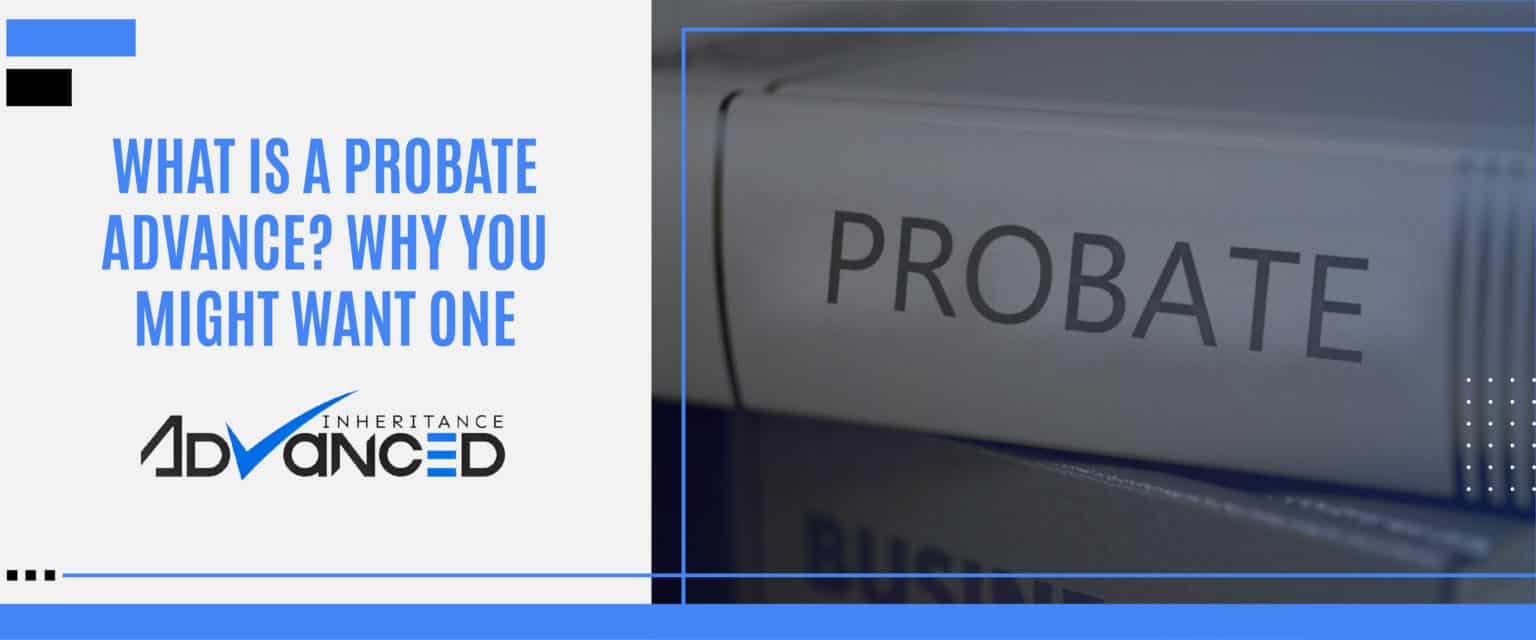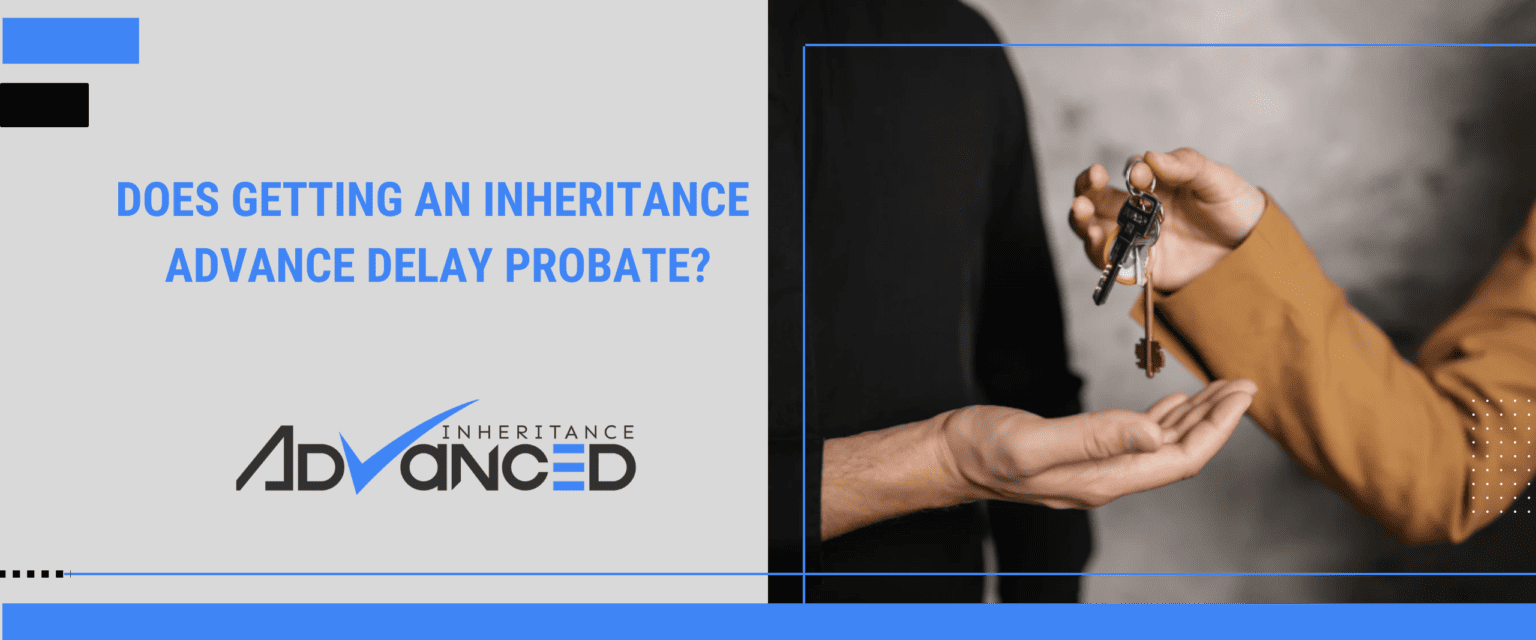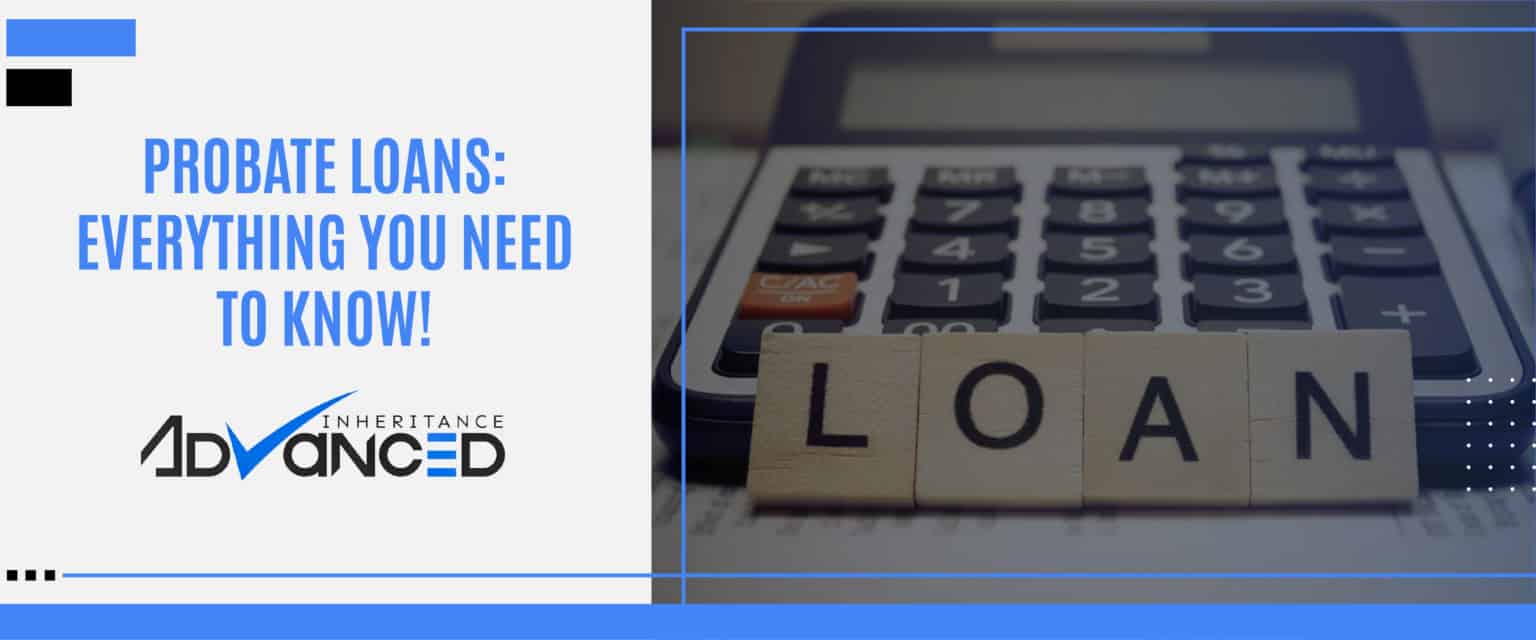Many people search for inheritance loans when they are in the long probate process and waiting to receive a distribution of probate assets. An inheritance loan is a form of lending that beneficiaries, heirs, and executors seek while waiting for the final distribution of probate.
Many people find themselves in this situation, so you aren’t alone. At Inheritance Advanced, we’ve provided funding to over 1,500 beneficiaries of probated estates in the last two years.
In this article, we’ll tell you everything you need to know about inheritance loans, including how they work, what the repayment terms are, and how difficult they are to get along with the difference between inheritance loans and inheritance advances. We’ll jump right in with all the important information on inheritance loans..
What is an inheritance loan?
Receiving an inheritance loan can help make sure that you have financial stability until your estate is settled by the court. Most people search for inheritance loans before probate or during the probate process. It’s important to understand what an inheritance loan is so that you can get money quickly when you need it. An inheritance loan is a form of lending that is provided by banks or credit boroughs and functions just like traditional loans. That means that you will have to go through all of the traditional avenues in order to obtain the loan and it must be backed by an asset. Since the assets of the estate (like real estate) will not be officially transferred (aka the deed is not in your name) until the probate process concludes. Inheritance loans are different from probate advances because probate advances can happen immediately and don’t require the same level of verification and underwriting that an inheritance loan requires.

What Are The Requirements To Get A Loan On Your Inheritance?
Determining eligibility for an inheritance loan is very much the same as getting a mortgage or a personal line of credit. The inheritance lender will usually check the following:
- Credit Check
- Employment History
- Criminal History
- Earning History
- Available Funds For Repayment
- Assets to Back The Loan
Do You Qualify For An Inheritance Loan?
It is difficult to secure an inheritance loan which is the same as an estate loan even if you are inheriting real estate because technically the property and assets in probate are not in your name until the probate concludes. Banks are not likely to lend to individuals based on this because your inheritance can be lost if the will is contested or the process could take too long and you might not be able to keep up with regular interest payments.
An inheritance advance is different because you only have to prove that you are a beneficiary of the estate, how much the estate is worth, and then you can exchange your right to a portion of the estate proceeds in return for an immediate cash advance. A cash advance on inheritance can be used for whatever you want including paying inheritance taxes, home repairs or a nice vacation. The money is yours.
Inheritance lending companies
Inheritance lending companies are typically banks or credit unions. Typically companies that provide these high risk types of loans are federal credit unions or small banks. There are also inheritance funding companies like inheritance advanced which provide cash advances on inheritance when a beneficiary is in probate.
What Is The Structure Of An Inheritance Loan?
Inheritance loans are most related to securing a second mortgage or home equity line of credit. In fact, many times they are the same thing. If you need money right away and you own a home, many individuals will opt for a home equity line of credit or reverse mortgage until they get their inheritance distribution from probate and then pay down the home equity line of credit, personal loan, or second mortgage. A home equity loan is a type of loan in which the borrower uses the equity of his or her home as collateral. The loan amount is determined by the value of the property, and the value of the property is determined by an appraiser from the lending institution. Inheritance loans are high interest because they are usually backed by an asset that already has a loan on it and thus the bank or credit union needs to receive a high-interest payment to protect their risk.
How Long Do Inheritance Loans Last?
Inheritance loans can be secured by an asset with a term duration to be paid back when probate settles and the borrower receives a distribution of probate. Once the borrower receives probate distributions they would pay back the principal amount of the inheritance loan. An Inheritance loan occurs as long as the probate case is open. This means that interest payments must be made during the entire time the probate case is open which usually takes from 9 to 36 months.
Synonyms for inheritance loans
There are many different names for inheritance loans. Inheritance loans are also called estate loans, probate loans and heir loans heir property loans, and executor loans.
Difference between inheritance loans and inheritance advances
Inheritance loans are different from inheritance advances and probate advances because advances are not a loan. Instead, they are a sale of a portion of future inheritance in exchange for immediate money and don’t require interest payments.

Inheritance Loan Vs Probate Loan
An inheritance loan is the same thing as a probate loan it is just specifically stating that the loan is made when the heir is in the probate process. An inheritance loan could technically refer to a loan made against someone’s trust if it is in a lockup period.
Inheritance Loan FAQ's
Why do people typically try and get a loan on their inheritance?
Reasons why people request a loan on their inheritance:
- Debt incurred while serving as a caregiver for the decedent.
- To pay for the funeral and burial of the decedent.
- You need help paying for your living expenses and other monthly payments or other personal expenses that have come up.
- The heir or heiress doesn’t want any financial stress while going through the probate process and wants disposable income.
Are there alternatives to Inheritance Loans?
Yes, there are alternatives to inheritance loans in the form of inheritance cash advances, otherwise known as probate advances. These cash advances are simple to secure and have no terms attached to them. A probate advance is the same as selling a portion of your inheritance in return for immediate cash.
A probate advance is much easier than seeing if you qualify for an inheritance loan. To get a probate advance you have to prove that you are a beneficiary of the estate and go through initial documentation. After that, you basically just have to agree on how much money you want and you can receive the money within 24 hours.
What does an inheritance loan cost?
An inheritance loan has similar interest rates to a high-interest credit card. The fees must be paid on a monthly basis until the loan amount is repaid which usually happens at the conclusion of probate when you finally receive your inheritance distribution from the probate court.
The cost of a probate advance is much more simple. You don’t have to calculate compounding interest or anything like that. You sell a portion of your estate for immediate cash so there is one transaction. The probate advance company then receives the agreed-upon amount when probate is finished. The funding company waits for probate to finish so that you don’t have to. The amount of money you receive from an estate inheritance advance company is often a percentage of the total amount you are due to inherit. You can receive lots of money through advance inheritance funding and we wait for the probate process to finish so that you don’t have to.
How long does it take to get an inheritance loan?Accordion Title
A traditional loan can take anywhere from 30-120 days to complete if you find a lender that is willing to provide an inheritance loan. You will repay the agreed-upon interest rate for the remaining term of the loan which is usually the same as the time that it will take to finish the probate process. Since probate can take anywhere from 9 months to 3+ years to complete, you may be paying high interest for a long time.
An Inheritance advance is faster to receive than an inheritance loan
How much money can you receive from an inheritance loan?
Typically you can receive up to 30% of your total inheritance in the form of a loan or cash advance on the amount on your portion of the probate after expenses.
How Long Does it Take To Get An Inheritance Loan?
Inheritance loans can take months to be underwritten. The timeline is usually similar to a mortgage if the bank or credit union approves the loan. If you apply for an inheritance advance, an approval or denial will occur in a matter of hours. If you are approved, the portion of your inheritance can be deposited into your bank account within a matter of days by the inheritance funding company. Inheritance advances do not need to be repaid so long as they are not a traditional inheritance loan.
Final Thoughts On Inheritance Loans
If you are an heir to an estate that has entered probate and you need cash to pay the bills, get out of debt, or for any other reason, it’s time to apply for an inheritance advance. The experienced and compassionate team at Inheritance Advanced is here to help you obtain the cash you need. We have helped clients throughout the country acquire the money they need to make ends meet while waiting for probate to settle.
Fill out an application today to receive immediate money from your inheritance. We can help you acquire the money you need from your inheritance with little fees so you can get rid of debt, pay the bills, or handle medical expenses accordingly through an inheritance advance. Our phone number is a great way to receive prompt and personal service from a member of our team.










